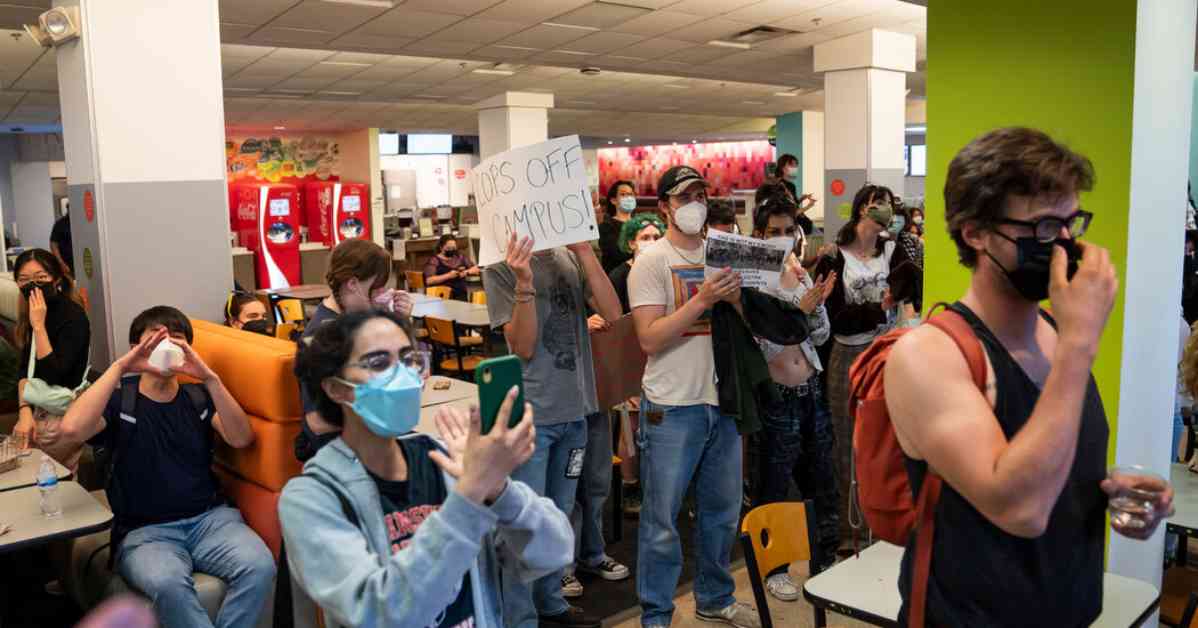Global Connection: Student Protesters Unite Beyond Gaza
Student activists across the country are coming together in solidarity to protest against the ongoing conflict in Gaza. While the war may be happening miles away, these students feel a deep connection to the issues at hand. From policing to climate change, they see the struggle for justice in Gaza as intertwined with various other social justice movements. This sense of global connection has inspired them to take action, even at the risk of arrest.
Inspiration from Local Efforts
At Emory University in Atlanta, student protesters have found inspiration in the local fight against a police training facility known as “Cop City.” This grassroots movement has energized students to stand up against police brutality and racial injustice in their own community. It is this spirit of resistance that has fueled their activism in solidarity with the people of Gaza.
Linking the Past to the Present
For many students like Ife Jones, a first-year student at Emory University, the current activism echoes the civil rights movements of the 1960s. Drawing inspiration from her family’s involvement in that era, Ms. Jones sees parallels between then and now. She notes that the only thing missing in the current pushback against demonstrators are the dogs and water cannons, highlighting the continued struggles for justice in today’s society.
Broadening the Lens
While the focus of their activism may be on Gaza, student protesters are also drawing connections to a range of other pressing issues. From the mistreatment of Indigenous peoples to systemic racism against Black Americans, they see a common thread of injustice that transcends borders. This broader perspective fuels their passion and drives them to fight for a more just and equitable world.
As they speak out against the violence in Gaza, these students are also shining a light on the interconnected nature of social justice movements. They understand that the fight for Palestinian rights is not happening in isolation, but is part of a larger struggle for equality and human rights. By standing in solidarity with Gaza, they are also standing up against oppression and discrimination in all its forms.
Voices of Change
In interviews with student protesters from various universities, a common theme emerges: the urgency and determination to make a difference. These young activists are not content to sit idly by while injustices persist around the world. They are willing to put themselves on the line to speak truth to power and demand a better future for all.
One student, Sarah Patel from UCLA, expresses her frustration with the lack of action from world leaders in addressing the crisis in Gaza. She emphasizes the need for grassroots movements to drive real change and hold those in power accountable for their actions. For Sarah and many others like her, activism is not just a choice, but a moral imperative.
Building Solidarity
The student protesters’ efforts to unite beyond Gaza are a testament to the power of solidarity in the face of adversity. By coming together across campuses and communities, they are amplifying their voices and creating a collective force for change. This sense of unity is what sustains them in their fight for justice and keeps them motivated to continue the struggle.
As they march in the streets, hold rallies, and engage in acts of civil disobedience, these students are not just protesting against the violence in Gaza. They are also challenging the systems of oppression that perpetuate inequality and injustice around the world. Their actions may be small in scale, but they carry the weight of a global movement for peace and justice.
In conclusion, the student protesters’ global connection goes beyond geographic boundaries. It is a shared commitment to fighting for a more just and equitable world, where all people can live in peace and dignity. Their voices may be young, but their message is powerful: solidarity in the face of injustice is the key to creating lasting change.




















